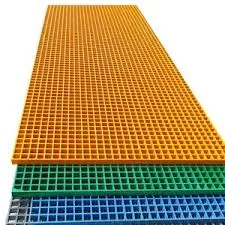
-
 Afrikaans
Afrikaans -
 Albanian
Albanian -
 Amharic
Amharic -
 Arabic
Arabic -
 Armenian
Armenian -
 Azerbaijani
Azerbaijani -
 Basque
Basque -
 Belarusian
Belarusian -
 Bengali
Bengali -
 Bosnian
Bosnian -
 Bulgarian
Bulgarian -
 Catalan
Catalan -
 Cebuano
Cebuano -
 China
China -
 China (Taiwan)
China (Taiwan) -
 Corsican
Corsican -
 Croatian
Croatian -
 Czech
Czech -
 Danish
Danish -
 Dutch
Dutch -
 English
English -
 Esperanto
Esperanto -
 Estonian
Estonian -
 Finnish
Finnish -
 French
French -
 Frisian
Frisian -
 Galician
Galician -
 Georgian
Georgian -
 German
German -
 Greek
Greek -
 Gujarati
Gujarati -
 Haitian Creole
Haitian Creole -
 hausa
hausa -
 hawaiian
hawaiian -
 Hebrew
Hebrew -
 Hindi
Hindi -
 Miao
Miao -
 Hungarian
Hungarian -
 Icelandic
Icelandic -
 igbo
igbo -
 Indonesian
Indonesian -
 irish
irish -
 Italian
Italian -
 Japanese
Japanese -
 Javanese
Javanese -
 Kannada
Kannada -
 kazakh
kazakh -
 Khmer
Khmer -
 Rwandese
Rwandese -
 Korean
Korean -
 Kurdish
Kurdish -
 Kyrgyz
Kyrgyz -
 Lao
Lao -
 Latin
Latin -
 Latvian
Latvian -
 Lithuanian
Lithuanian -
 Luxembourgish
Luxembourgish -
 Macedonian
Macedonian -
 Malgashi
Malgashi -
 Malay
Malay -
 Malayalam
Malayalam -
 Maltese
Maltese -
 Maori
Maori -
 Marathi
Marathi -
 Mongolian
Mongolian -
 Myanmar
Myanmar -
 Nepali
Nepali -
 Norwegian
Norwegian -
 Norwegian
Norwegian -
 Occitan
Occitan -
 Pashto
Pashto -
 Persian
Persian -
 Polish
Polish -
 Portuguese
Portuguese -
 Punjabi
Punjabi -
 Romanian
Romanian -
 Russian
Russian -
 Samoan
Samoan -
 Scottish Gaelic
Scottish Gaelic -
 Serbian
Serbian -
 Sesotho
Sesotho -
 Shona
Shona -
 Sindhi
Sindhi -
 Sinhala
Sinhala -
 Slovak
Slovak -
 Slovenian
Slovenian -
 Somali
Somali -
 Spanish
Spanish -
 Sundanese
Sundanese -
 Swahili
Swahili -
 Swedish
Swedish -
 Tagalog
Tagalog -
 Tajik
Tajik -
 Tamil
Tamil -
 Tatar
Tatar -
 Telugu
Telugu -
 Thai
Thai -
 Turkish
Turkish -
 Turkmen
Turkmen -
 Ukrainian
Ukrainian -
 Urdu
Urdu -
 Uighur
Uighur -
 Uzbek
Uzbek -
 Vietnamese
Vietnamese -
 Welsh
Welsh -
 Bantu
Bantu -
 Yiddish
Yiddish -
 Yoruba
Yoruba -
 Zulu
Zulu
frp weir
Understanding FRP Weirs A Smart Solution for Water Management
Flow measuring devices play a critical role in hydraulic engineering and water resource management, and one of the most effective tools in this domain is the FRP weir. FRP, or Fiber Reinforced Polymer, combines lightweight characteristics with exceptional durability, making it an ideal material for constructing weirs that manage water flow in various applications. This article delves into the significance, advantages, and applications of FRP weirs in modern water management.
What is a Weir?
A weir is a barrier across a river or stream designed to alter the flow characteristics of water. Typically, they are used for measuring flow rates, creating a head of water for hydraulic power, or controlling water levels. Traditional weirs are often made from concrete or steel, but the advent of FRP technology has opened new avenues for improved performance and efficiency.
The Advantages of FRP Weirs
1. Corrosion Resistance One of the most significant benefits of FRP weirs is their resistance to corrosion. Unlike traditional materials, FRP is impervious to the effects of water, chemicals, and environmental factors, ensuring longevity and reduced maintenance costs.
2. Lightweight FRP is significantly lighter than concrete or metal. This lightweight characteristic makes transportation and installation easier and reduces the structural support needed, thereby lowering overall construction costs.
frp weir

3. Customizability FRP weirs can be manufactured in various shapes and sizes to meet specific project requirements. This customization allows for tailored solutions that address unique hydraulic conditions.
4. Strength and Durability Despite being light, FRP weirs offer high strength and can withstand significant hydraulic forces. This durability ensures they maintain structural integrity over time, even under challenging conditions.
5. Eco-Friendly As environmental concerns become increasingly critical, FRP weirs offer a more sustainable option. They can be made from recycled materials and have a lower environmental impact compared to traditional constructions.
Applications of FRP Weirs
FRP weirs find utility in a diverse array of applications. They are commonly used in municipal water supply systems, wastewater treatment facilities, and irrigation schemes. In industrial contexts, FRP weirs are deployed in process water management, where precise flow measurement is crucial. Additionally, they are an excellent choice for research purposes and environmental monitoring, providing accurate data in a lightweight and durable package.
Conclusion
As water management becomes increasingly vital in the face of climate change and growing populations, the use of advanced materials and technologies such as FRP weirs will be indispensable. Their unique combination of lightweight properties, durability, and resistance to corrosion positions them as a favorable option for engineers and water resource managers. From municipal applications to industrial processes, FRP weirs are revolutionizing the way we measure and manage water flow, paving the way for more resilient infrastructure and sustainable practices. As we continue to explore innovative solutions in water management, FRP weirs stand out as a testament to the progress being made in this essential field.









